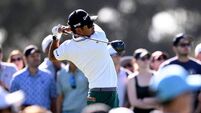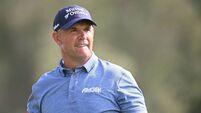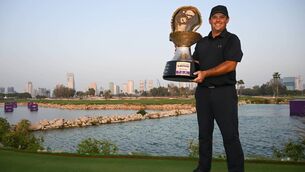‘Nicklaus once told me the majors were the easiest to win because nine out of 10 players choke when the prize is in sight’
More than a quarter of a century after the American won his first major, here he was, well into his 60s, with an eight-foot putt to win The Open. The fact that he missed, went to a play-off and ultimately lost to Stewart Cink means little to British golfing great Tony Jacklin, who still regards Watson’s four rounds as “the greatest performance I have ever seen on a golf course”.
Jacklin goes further, arguing that what Watson achieved in what is still essentially a young man’s game is right up there with Muhammed Ali’s famous Rumble in the Jungle comeback, when he beat George Foreman to regain the World Heavyweight title in 1974.
















